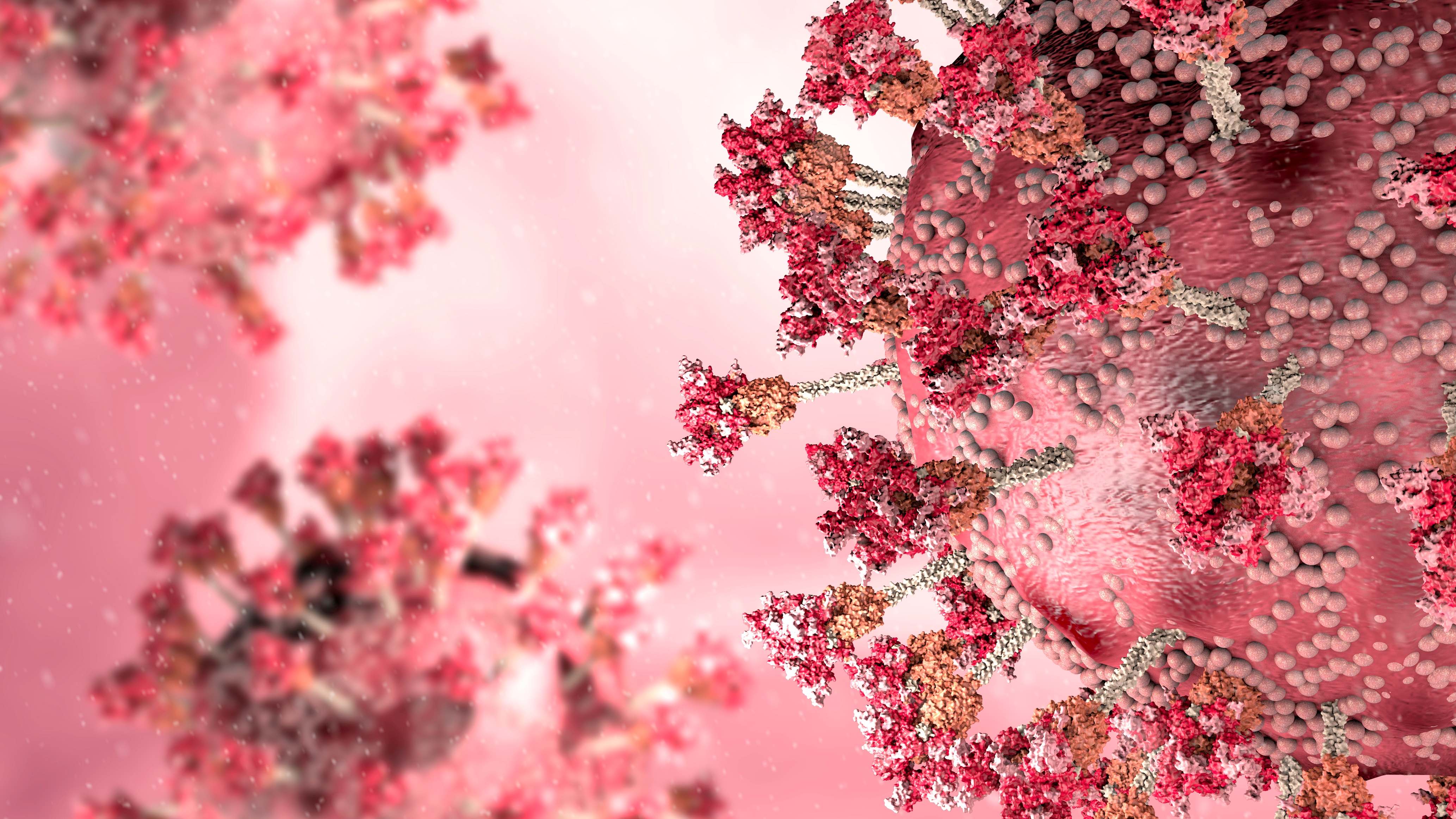Belgian researchers identify new antibodies against current and future coronaviruses
Ghent, Belgium, 9 June 9 2025 – Scientists have discovered a unique class of small antibodies that are strongly protective against a wide range of SARS coronaviruses, including SARS-CoV-1 and numerous early and recent SARS-CoV-2 variants. The unique antibodies target an essential highly conserved site at the base of the virus’s spike protein, effectively clamping it shut and preventing the virus from infecting cells. The findings, published in Nature Communications, offer a promising route to developing broad-spectrum antiviral treatments that could remain effective against future viral variants.
SARS-CoV-2, the virus behind COVID-19, continues to be a potential threat as it evolves into newer variants that are resistant to currently approved antibody therapies. Resistance largely emerges because antibodies typically target virus regions, such as the receptor binding domain of the spike protein, that also frequently mutate, enabling escape from antibody recognition.
To address this, a research team led by Prof. Xavier Saelens and Dr. Bert Schepens at the VIB-UGent Center for Medical Biotechnology explored a different strategy by focusing on one of the more stable subunits of the spike protein. The so-called S2 subunit is critical for the virus’s ability to fuse with host cells, a process essential for infection, and it is more conserved across different coronaviruses.

A molecular clamp on the virus
The team turned to llamas (more specifically a llama called Winter). Llamas generate so-called single-domain antibodies, also known as VHHs or nanobodies, that are much smaller than the antibodies generated by most animals, including humans. The researchers identified several llama antibodies that strongly neutralize a broad panel of SARS coronaviruses.
What makes these antibodies particularly promising is their unique mode of action: they act like a molecular clamp. They latch onto the poorly exposed, highly conserved region (a coiled coil of 3 alpha helices) at the base of the virus's spike protein. In doing so, they lock the spike protein in its original shape, physically preventing it from unfolding into the form the virus needs to infect cells.

The antibodies showed strong protection against infection in lab animals, even at low doses. And when researchers attempted to force the virus to evolve resistance, the virus struggled, producing only rare escape variants that were much less infectious. This points to a powerful, hard-to-evade treatment option.
“This region is so crucial to the virus that it can’t easily mutate without weakening the virus itself,” explains Schepens, senior author of the study. “That gives us a rare advantage: a target that’s both essential and stable across variants.”
Better treatments
This discovery marks a significant advancement in the quest for durable and broadly effective antiviral therapies, offering hope for treatments that can keep pace with viral evolution.
"The combination of high potency, broad activity against numerous viral variants, and a high barrier to resistance is incredibly promising," adds Saelens. "This work provides a strong foundation for developing next-generation antibodies that could be vital in combating not only current but also future coronavirus threats."
Publication & funding
Ultrapotent SARS coronavirus-neutralizing single-domain antibodies that clamp the spike at its base. De Cae, S., Van Molle, I., van Schie, L. et al. Nat Communications, 2025. DOI: https://doi.org/10.1038/s41467-025-60250-1
This research was made possible with financial support from, among others, the Research Foundation – Flanders (FWO), the EOS-programme, EU Horizon 2021, and Exevir Bio BV.



